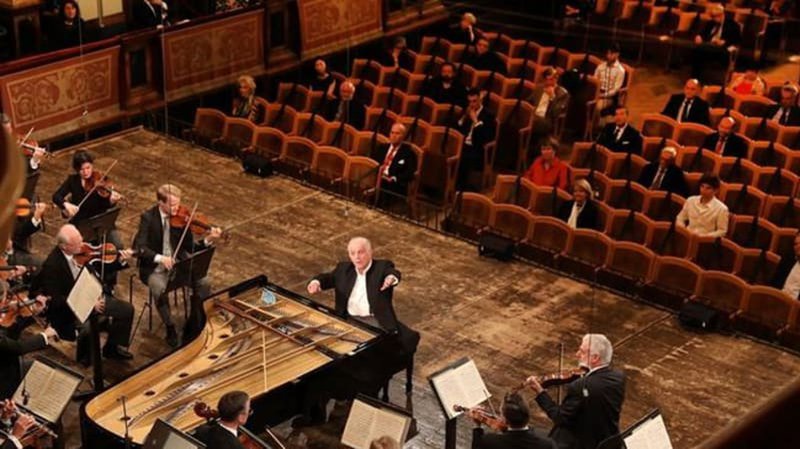
Vienna Philharmonic purrs back to life after pandemic pause
The Vienna Philharmonic returned home, and its famous strings purred for the first time since March 10.
Its 2,854-seat Musikverein, considered by many the world’s most beautiful concert hall, was filled with only 100 people Friday for the first of three days of programs with Daniel Barenboim. Because of the negligible number, tickets were distributed to family, friends and donors for among the first performances by a major orchestra since the pandemic paused the season.
During the three-month gap, the orchestra players struggled to fill their time. Michael Bladerer, a contrabass, recalled talking with Daniel Froschauer, a first violinist.
“We had a walk every day for one hour just to discuss the issue,” Bladerer, also the CEO, said in a telephone interview.


